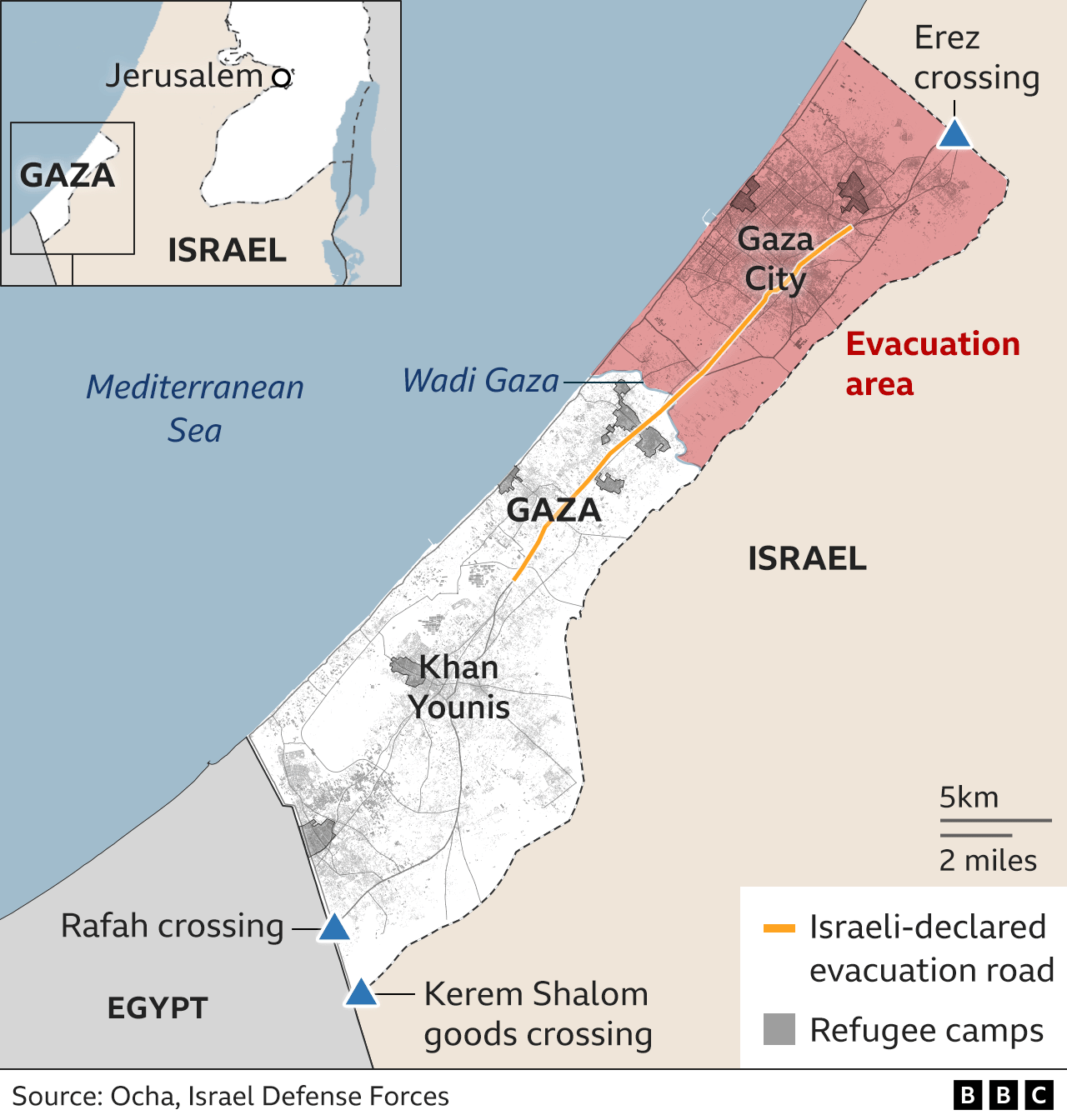-

-
-
Loading

Loading

According to a senior UN official, some Palestinians who initially fled their homes in the north of Gaza are now returning due to the dire situation in the south. Israel had instructed 1.1 million residents to evacuate from Gaza City and other northern areas to ensure their safety. However, upon reaching the south, these individuals are facing challenges in finding shelter, food, and drinking water. The health ministry in Gaza, controlled by Hamas, has reported hundreds of casualties from Israeli air strikes. In response, the Israeli military has said that it targeted numerous military sites belonging to Hamas throughout Gaza. The death toll in Gaza has now reached over 5,000, with the majority of the casualties occurring since Israel began its bombardment as a response to a cross-border attack by Hamas. Notably, Israel has restricted the supply of electricity, water, and imports of food and medicine in Gaza, although it has allowed some aid lorries to enter through Egypt's Rafah crossing since Saturday. The UN estimates that about 1.4 million people, nearly two-thirds of Gaza's population, have been displaced over the past two weeks due to fear or the destruction of their homes. The influx of displaced people in the southern city of Khan Younis has overwhelmed the area, with many seeking shelter in hospitals, clubs, restaurants, or even resorting to sleeping on the streets. The director of the UN agency for Palestinian refugees in Gaza has reported that most displaced people are surviving on limited amounts of water and bread each day. The combination of the humanitarian crisis and continued strikes on civilian areas in the south has prompted some Palestinians to return to the north. However, the north has also been severely affected, with residents forced to leave their houses, businesses, and lives behind. The situation in the south is described as dire, with limited access to shelter, scarce food, and many people resorting to drinking unsuitable water. The lack of fuel in Gaza is a significant concern as it affects desalinization plants and hospitals. Gaza's health ministry has warned of a fuel shortage at public hospitals and is only able to provide essential life-saving services. Israel has justified its refusal to allow fuel in by claiming that it could be utilized by Hamas for military purposes. The IDF has significantly intensified its airstrikes in Gaza, targeting tunnels, operational centers, military compounds, and observation posts. Videos on social media have shown the extent of these strikes, illuminating the sky with blasts. The Al-Quds hospital in Gaza City has experienced ten strikes within 100m (330ft) of its premises, which currently houses 500 patients and 1,500 individuals seeking shelter. The health ministry in Gaza has reported 436 deaths, including 182 children, in the past 24 hours, most of which occurred in the south. Overall, since Israel initiated its response to Hamas's attacks, the death toll in Gaza has risen to 5,087. It is worth noting that Hamas blamed an Israeli air strike for an explosion at al-Ahli Arab hospital, resulting in casualties; however, the IDF has presented evidence suggesting that the blast was caused by a failed rocket launch by Palestinian Islamic Jihad. The UK government has supported this assessment, aligning with the conclusions drawn by the US, France, and Canada. According to the IDF, since October 7th, Hamas and other groups in Gaza have fired 7,000 rockets towards Israel, with 550 of them falling within Gaza.